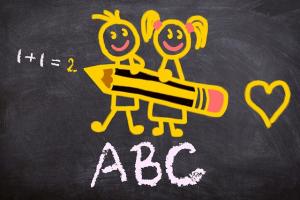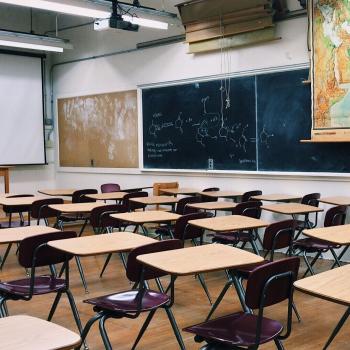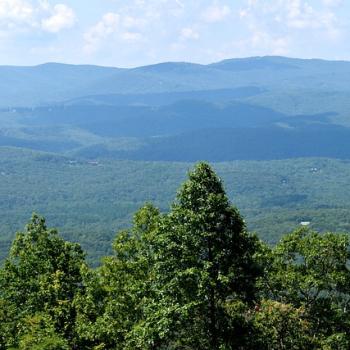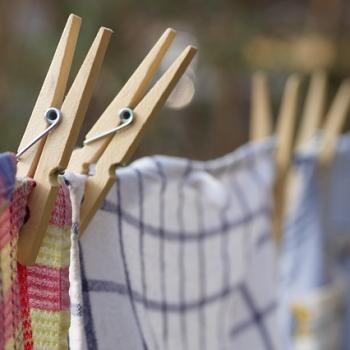
Let’s talk about school.
I’ve talked a lot about my own experiences in school. Before I was homeschooled, I went to Catholic parochial schools and hated every minute of it. I was bullied into full-blown PTSD by the children and even one of the teachers. The academics weren’t very good either. After that I was homeschooled from the sixth grade until college, and homeschooling saved my life. It was the best choice my parents could have made. We belonged to a really fun close-knit group of homeschoolers who pooled their resources for tutors to make sure their kids were getting a great education. We had homeschool band together on Wednesdays and Fridays. Tuesdays and Thursdays there was a homeschool theater club that was my favorite thing in the world. We even arranged to have a swing dance for the older kids, and it was fantastic.
When I had my own child, I assumed I’d homeschool because I wanted to give her the very best. I did homeschool, through the fifth grade. I enrolled her in martial arts lessons and Bible Club so she could meet other children in the afternoons. I would say that Kindergarten through about second grade went fine. Then we had the COVID pandemic, and I wouldn’t have felt safe sending her to school anyway. But fourth and fifth grade were stressful. We were very lonely and isolated. I was reaching the end of my ability to teach math, which has always been my worst subject. Still, I did not want to send her to a Catholic school for several reasons. I couldn’t afford it. I was still very adverse to the culture in Catholic schools because of my experiences in my own childhood. And I was nervous about the Catholic culture here in Steubenville because it is extremely cliquish and insular, with the same kind of bullying I’d encountered at Catholic schools growing up in Columbus.
So I ended up enrolling her in the local public middle school a mile from her house.
I was terrified that I’d ruin her life by doing this, because I’d been warned by so many different people that public schools were horrendous. But so far, it’s been the best choice I ever made. She’s loved it. I’ve loved it. She’s getting a very good education.
When I homeschooled Adrienne, I mentioned that I don’t think homeschooling is the best choice for everyone. I knew that a lot of people sent their kids to school and got fine results. And now that I’m so pleased with my local public school, I want to emphasize that I’m not saying that everyone has to go to a public school. I still think homeschooling is a great choice for many. I think that a lot of Catholic parish schools are just fine. I just want to say that, if you are considering sending your kids to a public school but have been told they are a terrible choice, they might not be. Things might work out well.
I am not going to tell you how you should educate your child. All children are different, and there is no one-size-fits-all answer. I don’t know your child. I don’t know what schools are available near you. Only you can figure out what’s right.
The only thing I’m going to ask you is this: If you’ve been told that public schools are uniformly terrible and will ruin your child’s life, where did you get your information?
Did you get it from someone who has been to the school in question, or whose kids were sent there, and who had a terrible experience? Or better yet, did you get it from several people, all of whom went to the same place and had terrible experiences? And was the experience they told you about systemic, something that’s likely to happen again, because the people in charge chose to let it happen as a feature and not a bug? That’s a very good reason to steer clear of that school and try something else. Those people don’t have the whole story of every single thing that happens at the school. Nobody does. But they do have concrete experience of the school themselves and know exactly what you might encounter. That’s a fantastic place to get your information.
Did you get your warning not to try the public school from a political shock jock on a podcast? That’s a bad place to get your information. Those people don’t go to the school. They probably don’t live in your community at all. And their whole job is to make perfectly normal things we all encounter seem scary and offensive, so that you’ll tune in again next time to get another dose of outrage. People whose job it is to sell outrage, should not be the ones helping you make decisions about how to educate your children.
Did you get your information from a priest in a sermon? That’s also a bad place to get your information, much of the time. Not always. But, at least in the Latin rite, priests don’t have kids. They’re not going to have a lot of firsthand experience about schooling. They’re going to have theories about schooling, and those theories are going to be untested. Now, maybe your particular priest has been at the parish with the Catholic school right there for years and years, he knows all the teachers, and he can give you very good advice about whether the school is right for your children or not. Maybe he himself is a teacher. Maybe he knows about a great homeschooling co-op. But in general, I’d say that’s not a good source.
Did you get your information from another family at the parish or the Couple to Couple League picnic, who has never sent the kids to that school in question, but have done something else from the beginning? That is, in my experience, also a bad source. Parents desperately want what’s best for their children. If we’ve committed to a certain course of action, we can start insulating ourselves from criticism by forming a particularly dark opinion about other choice. That’s natural. You’ll have to look somewhere else.
Did you get your information from a book? Was the book written in this century or this decade, about the region you’re in, about the kind of culture you live in, by somebody from that culture who knew it really well? Depending on your answer, that can be a good or a bad source of information.
As for me, I had been told my entire life, by people who never interacted with public schools, that public schools were horrible, and I’ve found that none of the information I was given was true.
I was told they don’t produce educated children and just drill them to pass state standardized tests. But at least in this case, that’s not true. Your mileage may vary. At this school, the teachers at the local public middle school are conscientious people, they know what they’re teaching, and my kid is learning a whole lot. She’s got the opportunity to take courses that I’d never have thought to include in a homeschooling unit study, like aerospace technology and computer programming. But the school is also not neglecting the Three R’s, and she’s making huge progress in those subjects as well.
I had been given to understand that public schools want to ridicule and marginalize Christian students and don’t allow any talk about religion at all, but that hasn’t been true. A lot of the teachers at the local middle school are Catholic like us. I see them at church. On Ash Wednesday, a lot of the teachers and students had ashes on their foreheads and nobody bothered them. When asked why, one of them said “because she’s Catholic” and then went back to what they were doing. There’s a minister who sometimes has prayer outside the school during the breakfast hour for anyone who wants to join in, though nobody has to and it doesn’t take place inside the school. The school sends a van full of kids to that minister’s free afterschool program with a Bible study if the parents sign up for it, but nobody’s required to go there. Another church runs the basketball day camp. The diocese holds Catechism of the Good Shepherd lessons somewhere else. No one is being deprived of their Christianity. The students can talk about their religion if they want to. They just don’t teach catechism or hold prayer in the classrooms, that’s all.
I had been told that public schools load kids up with busywork and don’t let them have any time for creativity or fun, but this hasn’t been the case either. The teachers at this school are eager to finishing up their work before the class period is over and then taking the kids out to run around the track field, or to letting them play board games and goof around in the classroom if it’s too cold out. And Adrienne has plenty of time to finish her work at school during a study hall period, so she doesn’t usually have homework.
I had been deeply afraid of the bullying in public schools, but in this case, it hasn’t been a problem. Everyone who works at the school is proactive about stopping bullying. They realize how traumatic it is to be bullied, and they treat bullying like a crime instead of a rite of passage. There’s a zero tolerance policy for fights. Even more importantly, they encourage the children to be compassionate and praise them when they see them welcoming strangers and helping others. I’m very satisfied with that.
Furthermore, I had no idea how many helpful services were available at the school free of charge. I didn’t know that the school didn’t just have an extremely basic “nurse’s office” but a little clinic where they can give vaccines and swab for a flu if you ask. And I had no idea that a dentist comes to the school at least once a year if you sign up for it– free if you have Medicaid, and less than half the price of a normal dental visit if you don’t. I didn’t realize they have annual coat giveaways. I didn’t know there would be free breakfast and lunch. I didn’t even know that the schools are legally required to have a psychiatrist test for learning disabilities. There can be lots of resources centered around a public school, which you never find out about if your child doesn’t go there.
And your mileage may vary. Some public schools are every bit as bad as I was led to believe. A lot of people have trauma from public schools just as bad as mine was from the Catholic school. But you might find yourself pleasantly surprised, if you were indoctrinated as I had been.
I’m not telling you where to go to school, just asking you to examine where your information comes from.
Isn’t that the first step towards a good education anyway?
Mary Pezzulo is the author of Meditations on the Way of the Cross, The Sorrows and Joys of Mary, and Stumbling into Grace: How We Meet God in Tiny Works of Mercy.












